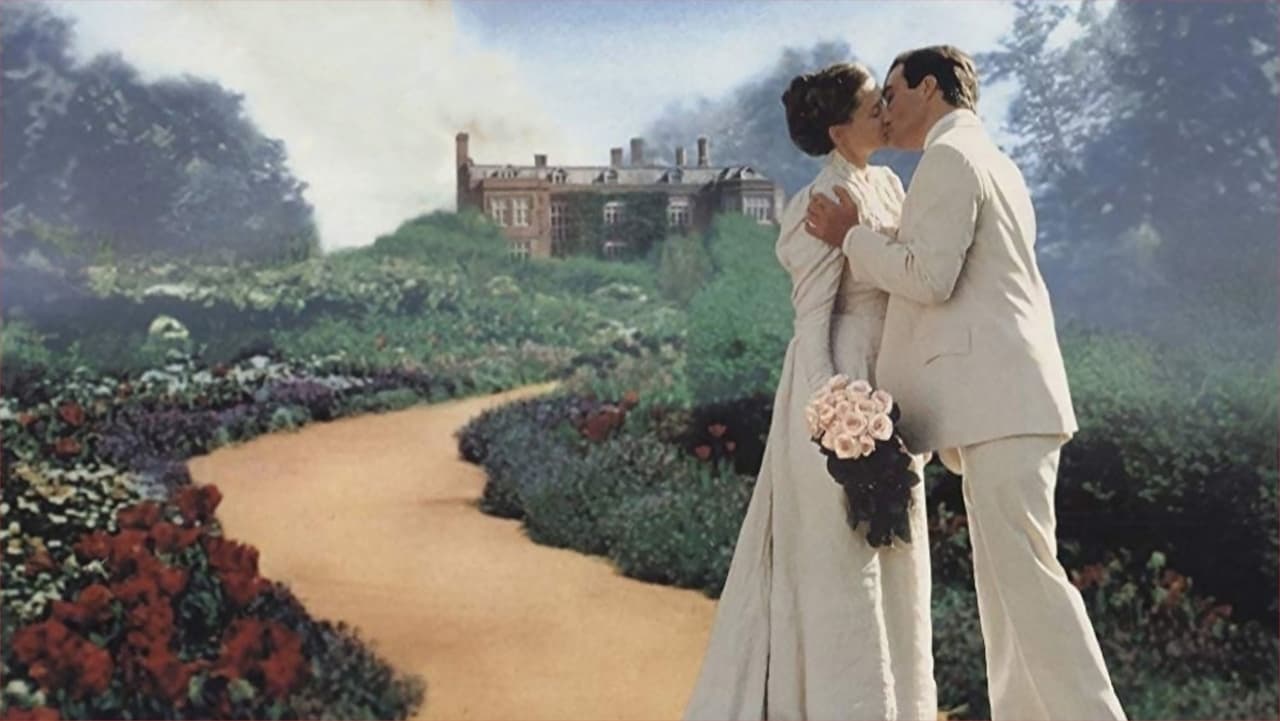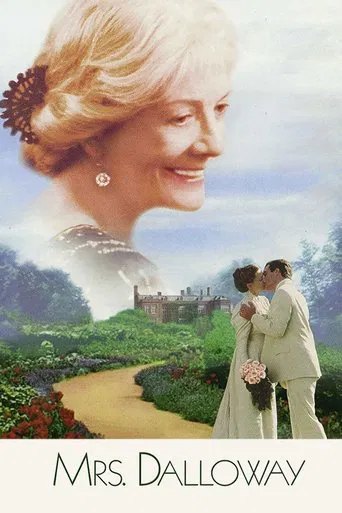

During filming, was Vanessa Redgrave taking mogadon? It was like she was reading from an autocue. I've seen more life in a wooden spoon. Or perhaps that was all part of the character? whatever, it was very very annoying, I kept wanting to shake the screen to hurry her up. I read the book a long time ago & didn't like much about it except that Septimus's descent into madness was very well done - but I don't think Rupert Graves showed this very well, his acting was all on the surface. The connection between his life and Clarissa's is not very well done either but I suspect the attempt is to show the sacrifice soldiers made to enable people like Clarissa to continue their vapid lives. The film is very bitty and has no real unity to it. Hated it.
... View MoreSpoilers herein.Woolf was an interesting writer, in a way. She occupied herself with ordinary stories about people with ordinary problems, like the river of thousands of other writers. But at the same time, she devised a rather extraordinary manner of circumnavigating those same issues. Safety on the one hand, risk on the other.And that's incidentally what this story is about: bracketing life between the damage from taking risks and the damage from not taking them. Oddly, Woolf created her own detractors because many will come to this book and this movie expecting Evelyn Waugh, or Edith Wharton. These are safe readers/viewers. They want the simple taste of a pleasant story, but this is precisely the vacuousness that drives Woolf out of her story.Other writers were experimenting with what it means for the narrative to leave the grounding of the story and become its own character with its own drive. Joyce would leave the story to encounter fragments of a dream life, but those fragments would be well ordered according to geometric cosmologies and the geography of Dublin. Proust would similarly layer the story but with fragments of annotated recollection. The order in his case came from rather mechanical folding of time and awarenesses.Woolf is at once between them (annotated memory, but fabricated from yearnings) and apart: her narrative wanders. It has a mothlike quality -- deep insight with an attention deficit. The capriciousness of the thread was result of the capriciousness of fate the irrelevance of decision. Why would I mention all this? Because each of these features has a cinematic counterpart.Hitchcock and Tarkovsky invented the camera that has its own motivation and is likely to take interest or be distracted. Altman and now Anderson developed the cinematic conventions for shifting characters while maintaining the same issues and perspectives. (See "Things You Can Tell" for the best: many stories and characters, all the same woman.)Several filmmakers have successfully experimented with the kind of layering Woolf used: folding between the imaginer and the imagined. Pinter specifically quotes Woolf in his "French Lieutenant's Woman," and even brushes her sleeve in his unproduced screen play of Proust. There was lots for Ms Gorris to work with in approaching this project. There was plenty she could have safely done to emulate the experimental approach of Woolf. But no. She chose extreme safety. She chose the Dalloway life. "The Hours" played the game. It invented nothing new cinematically, merely understood that the story didn't matter a whit. That's the point. And that Woolf introduces her own presence in the narrative. "The Hours" was a far superior flight, but still not nearly as risky as its source. All that business about Richard Brown had too much purpose. Septimus Smith being in the trenches was as arbitrary as Clarissa's appearance in the flower shop.Bottom line: yet another project that doesn't take the risks whose depiction is the purpose.Ted's Evaluation -- 2 of 3: Has some interesting elements.
... View MoreEveryone doesn't like everything, so I'm not surprised that some people find the movie of Mrs. Dalloway boring. They probably would find the book boring too. But it's depressing. So they won't agree with some of us who see the novel as one of the great works of the 20th century, and the film as a truly remarkable and beautiful capturing of it. The only touch I regretted was the opening of the film with the Septimus Warren-Smith war scenes. The opening really belongs with Mrs. D. and her first words, "I will buy the flowers myself." After that moment, it's a quiet day but a beautiful and sensitive one.
... View MoreWhile I agree with some of the more perceptive comments made here, I have a few of my own to add. First, the novel on which this film is based is an all-time favorite of mine and I'm happy to have seen it beautifully translated into cinematic form. The contrast between the personal and inner life of an upper class English woman and the horrors produced by war (in this case, symbolized through the experience of one man, brilliantly portrayed) is both moving and exacting. Vanessa Redgrave gives a splendid performance as Clarissa...sensitive, radiant, conservative and uncertain about life decisions as she looks back (nicely depicted in flashback). Michael Kitchen as her would-be lover of old is perfect for the role...quietly romantic, sexy, with just the right British propriety. The troubled young war veteran and his wife are well cast and Marleen Gorris should be credited with graceful directing.
... View More